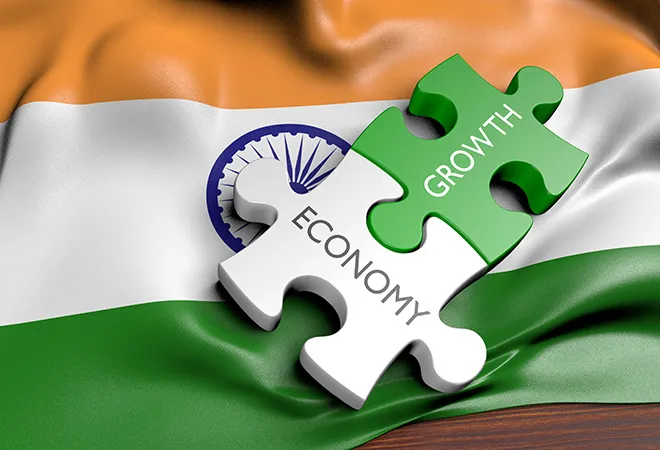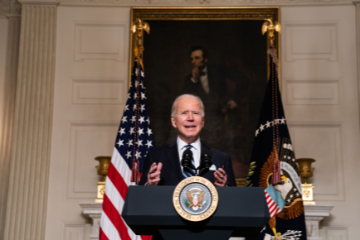
As India’s $2.7 trillion economy enters the next decade containing aspirations of becoming a $5 trillion powerhouse halfway through it and a $10 trillion giant by 2032, the policy conversations and the accompanying grammar needs to change. We cannot negotiate this disruptive yet unifying, globalising yet nationalistic future with broad strokes of yesterday’s tools. Broadly, there are three essential conversations calling India.
Knowledge society needs knowledge resources
First, the incoming decade should relook at the policymaking fraternity. While crafting a policy, the rule of whims must give way to the superiority of science. In the old way the tyranny of morally-driven policymaking must be replaced by the new tools of data, surveys, instant information flows. Most important, the new policymaking must be driven by an active citizen engagement. In the decade ahead, India must deploy data, information and knowledge as tools and individuals holding them or having the skills to use them as a capital resource.
Take the Goods and Services Tax, the most important economic reform India’s serial governments have attempted since 1985 when then Finance Minister V.P. Singh tried to bring in Modified Value Added Tax and finally delivered in 2017 by then Finance Minister Arun Jaitley. But the past habit of a top-down take-it-or-leave-it policymaking has ensured that the sharp impact it was supposed to have delivered has been blunted. Since July 2017, the government has made 125 tweaks to the execution of this law that has seen the compliance burden numb small entrepreneurs. It has failed its entrepreneurs on the refunds cycle. And worse, it has created financial tensions between the Centre and the States on release of funds to the latter.
The rulemaking body, the GST Council that comprises the Central as well as State governments, has made more than 30 changes to rates. What are they thinking? Let’s evaluate the work done. Apart from the Union Finance Minister, each of the 29 states (now, 28) has an economic bureaucracy overseeing this law, with State Finance Ministers expressing their requirements. There are millions of products in the market. Each product will be evaluated and a GST rate allotted. We don’t know the exact number but conservatively speaking, let us assume there are 25 categories, each having a team of 10 tax bureaucrats taking the number of 250. Multiply that by 28; we get 3,500. Add the Central team and broadly we are looking at approximately 5,000 of India’s top tax policymakers wasting their time on rate negotiations.
In its current form, the execution of GST has all but failed. It remains a good law, entrepreneurs continue to welcome it. But over the next decade, if the execution flow of GST remains what it has in the past two years, it would be one of India’s grandest policy failure. There are two things to be done. One, bring the victims of GST, listen to their compliance woes and genuinely simplify them. Voices on the ground say, anytime the Council talks about simplifying compliance, they can expect greater complexity. The credibility of the Council is at an all-time low.
And two, shift to a single rate. Having played around with all sorts of numbers and expended the energies of policymakers into a bureaucratic black hole, it is time to end the confusion. Find the revenue-neutral number. Add a few percentage points to it. If the revenue-neutral number is 12%, for instance, make GST 15%, for instance. Figure out how it works, and as revenues increase, reduce the rate. India then will have a two-rate structure – nil and 15%. Most important, ignore the politics, understand that the suit-book-ki-sarkar has lost its bite.
GST is only one example of the direction economic policymaking needs to take. This model of idea-feedback-modify (IFM) policymaking must be the grid going forward. There is huge data flowing in the economy today. Use it to power policy in all forums – laws, regulations, rules. Each of these must pass through IFM. Every institution, from Parliament and Assemblies to regulators and bureaucracy, must work around this model. Bring knowledge expertise from outside if needed, and proactively introduce the system of revolving door of policymakers.
Undo the past, get out of the way
Second, the decade beginning 2020 needs changes in policy direction, most of which must undo what the past seven decades have delivered. Studying the most important economic policies over the past seven decades, we come to three main conclusions.
They have rent-seeking paraphernalia of the Inspector Raj embedded in it – take any economic law and see how the power of the inspector has created huge conduits to bribery, violations and a system that thrives on it.
They have been captured by the morally high but practically are too wide ranging to make an impact. From spittoons and their locations on the factory floor written into law to 1,915 minimum wages that despite the complexity have kept one in three workers outside the purview of minimum wages, they are decaying but being kept alive for rent seekers to feed off from.
They have no logical feet to stand on. Driven by the whim of the day or a quick fix to a problem, India’s economic policymaking is a fable in self-aggrandising excesses. Take labour. There are 51 Central laws relating to this sector – three for industrial relations, four for wages, 22 for service conditions including safety, two for women, three for deprived and disadvantaged sections of society, and 17 around social security. What have they accomplished? Strengthened the entitlements around incumbents, often at the cost of job creation.
The government needs to study all irrational and out of date provisions in all laws and amend them. Or, better still, repeal the laws, and enact new laws that are more in tune with the requirements of global capital. The recent move to consolidate labour laws into four labour codes is merely repackaging. What India needs is a rethink of these laws as enabling tools for investments on one side and job creation on the other. From labour to land to factories to infrastructure, the economic superhighway of the 2020s needs a different economic thinking to build it.
Creation comes before redistribution
And third, by 2030, policy thought must shift away from wealth redistribution towards wealth creation. Across serial governments, cutting through all political parties, irrespective of ideology, over decades and going forward, the political will expressed by Parliament has been to see the entrepreneur as the bad guy in a low budget film. Guess what: the economy of India grew from under the feet of such luddite ideologies feet into a high budget multi-starrer. But even though we enjoy the benefits of this growth, our policy thought continues to be captured by povertarian thought, mostly unconsciously, sometimes wilfully for political messaging, and definitely exploitatively to feed an irreformable rent-seeking, entitled, highly-salaried, highly-perked and pension-protected bureaucracy.
To accuse the past of drafting laws that threaten to not merely impose economic fines but jail terms even for writing “MRP” instead of “Maximum Retail Price” (changed by the Andhra Pradesh High Court ), for instance, is one such. We want our entrepreneurs in jail, we hate them, we despise them. But at the same time, we want them to invest their money, their effort, their ideas. We want them to create jobs, pay taxes, provide growth. They are the constituents that will make a $10 trillion economy happen but only if we allow them.
What made the current government bring jail terms for violations on corporate social responsibility through an amendment we don’t know. But that it was forced to withdraw or not notify that provision shows that despite going by the motions of 20th century law making, this government is listening to voices of corporate dissent and changing.
The same governments that were busy turning entrepreneurs into convicts and drafting laws based on whims and posturing have gone out of their way to deliver redistribution. From social security to healthcare to education and everything in between, governments of the past have exceeded their political briefs at the cost of economic realities. Surely, those seeking the socialist aspirations of Sweden and transplanting them onto India must know that the per capita incomes of the two are $53,000 and $2,000 respectively. We need wealth before we can redistribute it.
Ideologically, our leaders have allowed themselves to be captured by a tiny fraternity of noise-makers, ensuring China on the GDP front and South Korea on the per capita income side to race ahead with smart policies, remove poverties and become global powerhouses. That needs to end. India needs to catch up and to do that it must embrace a little humility: at $10 trillion, India will be a major global force no doubt; but its per capita income will be close to $7,700, about $1,500 short of where China is today.
2020: the decade of reforming policymaking and reformed policymakers
Barring a lucky break here or a forced hand there, India’s economic policymakers have cheated their constituents over the past seven decades, institutionalised ideological stances on the political side and rent-seeking on the bureaucratic. Blind to ground realities, they can’t see that the India of yesterday has shifted. It’s time for the policymakers to understand, adjust and move with the times in 2020. We hope the coming decade reforms policymakers as much as the economy they seek to reform.
The views expressed above belong to the author(s). ORF research and analyses now available on Telegram! Click here to access our curated content — blogs, longforms and interviews.




 PREV
PREV



